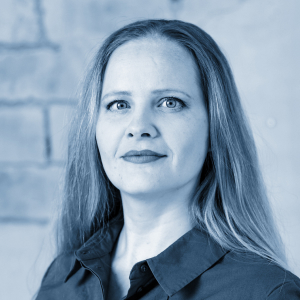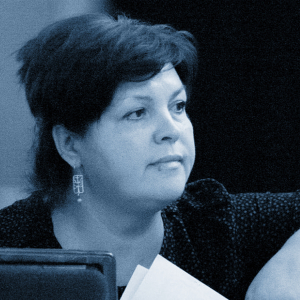Direct speech
Nataliya Khmilevska
Artistic director
Musica sacra Ukraina project in its current phase of a singing lab is really experimental, extraordinary, and abounds with discoveries. It appears that we are building a new type of communication within the team of performers, where every participant is a creator of the integral artistic piece in his or her own right and can immediately influence its interpretation. In the process of rehearsals, everyone can offer his or her own vision, his or her version of performance, and immediately discuss it with the academic adviser and other singers, which is rarely possible in the customary community of academic music-making.
At all concerts, every part is performed by a separate singer, which enhances the motivation and the responsibility.
The performers of the laboratory are professional singers of the top class, who flexibly use their instrument – they sing in tune (after all, in this music any intonational flaws are felt immediately), possess ensembling skills, are considerate towards the verbal text and the methods of its expressive presentation in singing. The challenges faced by them include the highest sophistication level of the concerts, featuring a wide range, application of extreme texture keys, meter-and-rhythm features of polyphonic texture, and the need to master the Baroque style. The main thing however is their readiness to switch their attention, since partes singing requires a change of the established perceptions of music, and therefore, a substantial reset of the world outlook.
At the present stage, partes singing is distinguished for the choice of the pitch, where A equals 415 Hz, by contrast to the customary tuning fork with A = 440 Hz, currently used in the bulk of the music performed today. Such a decision rests on the experience of the musicians who study and play Baroque music all over the world, since it is common knowledge that a great deal of the West European music was performed exactly in this version of tuning A. Furthermore, the tradition of church singing provides for a possibility of changing the height of pitch for the performers’ convenience.
Similarly to the West European Baroque music, partes rests on the declamatory, I dare say – «rhetoric» style of singing. It provides for the conscious delivery of narratives of the text at different levels – from the conveyance of purely decorative effects to diving into deep religious and philosophic attitudes. This prompts understanding of the integral dramatic composition of a piece in a different way and opens up the infinite variety of the possible versions of interpretation, none of which will ever be exhaustive and «genuine». This is a process of continuous immersion, where understanding of the slightest details changes the integral picture of perception.
In the pronunciation of all Old Slavonic texts, we follow the rules of the Ukrainian transliteration that are scientifically substantiated and clearly defined.



